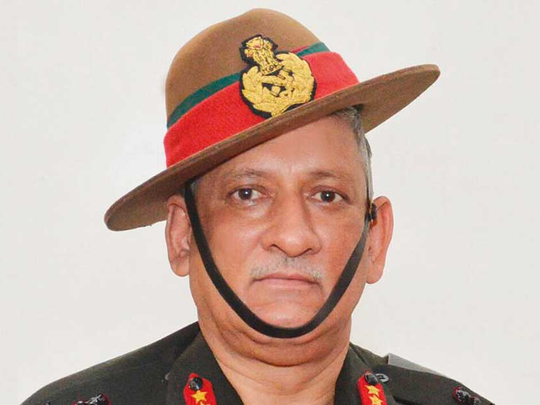
NEW DELHI: India’s army chief has said his country must be prepared for war and accused China of “testing our limits”, days after the nuclear-armed neighbours ended one of their worst border stand-offs in decades.
General Bipin Rawat said India could not afford to be complacent and should be prepared for the possibility of an all-out war.
“As far as our northern adversary is concerned, flexing of muscles has started,” Rawat said late Wednesday at a Delhi-based think-tank, in reference to China.
“The salami slicing, taking over territory in a very gradual manner ... testing our limits of threshold is something we have to be wary about and remain prepared for situations which could gradually emerge into conflict.”
“Whether these conflicts will be confined or limited in space and time or whether these can expand into an all-out war along the entire front (remains to be seen),” the Army chief said.
India and China went to war in 1962 over the state of Arunachal Pradesh.
Last month, the two nations withdrew their troops to resolve a tense deadlock over part of a Himalayan plateau claimed by both China and Bhutan, an ally of India.
Rawat also said India’s arch rival Pakistan — an ally of China — was likely to take advantage of the tensions.
“The western adversary taking advantage of the situation developing along the northern border is very much likely,” he said.
Pakistan and India have fought three wars since independence, two of them over the disputed region of Kashmir, which both claim in full.
China on Thursday wondered whether the Indian Army Chief’s war remarks represented the view of the Indian government and if he was “authorised” to make the statements, especially after the leaders of the two countries had a forward-looking meeting after the Doklam border stand-off.
Reacting to Gen. Bipin Rawat’s remarks on Wednesday that India should be prepared for a two-front war, Chinese Foreign Ministry spokesperson Geng Shuang said: “We don’t know if he was authorised to speak those words or if it was his spontaneous words and whether his remarks represented the position of the Indian government.”
Rawat’s comments made at a seminar came a day after Prime Minister Narendra Modi and Chinese President Xi Jinping had a forward-looking meeting on the sidelines of the BRICS summit where they agreed to maintain peace and tranquillity on the border.
“As far as our northern adversary is concerned, flexing of muscles has started. Salami slicing, taking over territory in a very gradual manner, testing our limits of the threshold is something we have to be wary of and remain prepared for such situations, which could gradually emerge into conflict,” Rawat had said in New Delhi, referring to China.
Geng recalled the one-on-one cordial meet between Modi and Xi to express surprise over Rawat’s remarks. He said a section of Indian media found Rawat’s statement “shocking”.
“Just like two days ago President Xi Jinping pointed out to Prime Minister Modi the two countries are each other’s development opportunities and not threats to each other,” Geng added.
The meeting between the leaders on the sidelines of the BRICS summit was hailed as a positive development after the resolution of an over two-month military stand-off at Doklam, on the Sino-India border.
Geng said that Modi too had shown willingness to work with China to maintain steady development of bilateral ties. “We should not treat each other as rivals.
“So we hope that this military official could see clearly these trends and contribute to the development of India-China relations and say something more in that regard,” he added.
Commenting on the Doklam stand-off, Chinese Foreign Minister Wang Yi said the border incident had “affected and undermined” India-China ties but added that the consensus reached between Modi and Xi was key to improving bilateral ties.
“For past few months for clear reasons, China-India relations were affected and undermined,” Wang said in an obvious reference to the stand-off between the armies of the two nations at Doklam.
“Going forward, the two sides need to work together to follow up on the consensus reached by the two leaders and make sure bilateral relations will stay on track,” he said, stressing that bilateral ties should not be derailed and there should be no confrontation.
He said harmonious relations and win-win cooperation was “the natural choice right choice” for both countries.
The first top Chinese figure to speak on the issue after the resolution of the over two-month military stand-off between India and China in the Sikkim sector, Wang said: “We need to build strategic mutual trust and the two sides need to work to really look at each other as cooperative partners rather than be driven by an old-fashioned mindset and regard each other as rivals or threats.”
“Both sides need to remain committed to the five principles of peaceful coexistence and work together to properly handle disputes and also work together to maintain tranquillity in border areas.”
– Agencies












